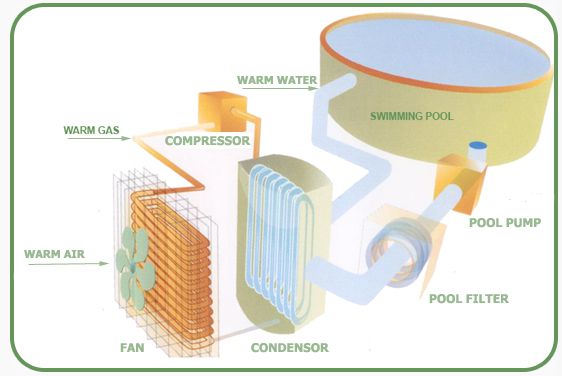
I once had cold pool water, now I use the warm outside air to create warm pool water. Today I’ll explain the benefits of using a pool heat pump to heat your above ground pool, and justify the extra cost of buying a pool heat pump, instead of a gas heater or solar heating panels.
At Specialty Pool Products, we sell aboveground pool heat pumps from 3 different manufacturers – Aqua Pro, Aqua Cal and Hayward. All pool heat pumps are going to do the same thing, which is providing heat so that your pool is more enjoyable. They do this by extracting heat from the outside air, kind of like an air conditioner, in reverse. Where heat pumps differ from each other is in the way they are manufactured and also the warranty.
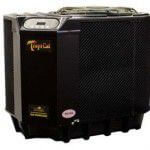 The first brand I am going to discuss is the Aqua Cal heat pump. The Tropical model comes in two sizes, the T55 (50,000) BTUs and the T75 (75,000 BTUs). These models have a titanium heat exchanger, digital controls dual thermostat and also a very good warranty of up to 7 years! An advantage of the Tropical heat pumps is that they continue to produce heat when the ambient temperature outside are down to the mid to lower 40s. Most heat pumps stop producing heat when they ambient temperature is in the low 50s.
The first brand I am going to discuss is the Aqua Cal heat pump. The Tropical model comes in two sizes, the T55 (50,000) BTUs and the T75 (75,000 BTUs). These models have a titanium heat exchanger, digital controls dual thermostat and also a very good warranty of up to 7 years! An advantage of the Tropical heat pumps is that they continue to produce heat when the ambient temperature outside are down to the mid to lower 40s. Most heat pumps stop producing heat when they ambient temperature is in the low 50s.
 The next brand of heat pumps we offer is called Aqua Pro. The PRO800 model has 80,000 BTUs, for larger above ground pools. This heat pump also comes with a titanium heat exchanger and a strong 5 year warranty. The Aqua Pro 800 also comes with a digital dual thermostat for easy climate control. The Aqua Pro heat pump also has one of the smallest footprints, making it easier to position and install.
The next brand of heat pumps we offer is called Aqua Pro. The PRO800 model has 80,000 BTUs, for larger above ground pools. This heat pump also comes with a titanium heat exchanger and a strong 5 year warranty. The Aqua Pro 800 also comes with a digital dual thermostat for easy climate control. The Aqua Pro heat pump also has one of the smallest footprints, making it easier to position and install.
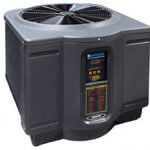 Last but not least is the Hayward A/G Pool Heat Pump. 50,000 BTUs of heat; a good size for pools up to 13000 gallons. Hayward heat pumps include a titanium heat exchanger, easy to read digital temperature display and lock out capability. One of the features this unit offers is that it has an acoustic compressor cover which helps reduce the noise of the compressor. It’s the most economical heat pump to purchase, and comes with a 1-year warranty.
Last but not least is the Hayward A/G Pool Heat Pump. 50,000 BTUs of heat; a good size for pools up to 13000 gallons. Hayward heat pumps include a titanium heat exchanger, easy to read digital temperature display and lock out capability. One of the features this unit offers is that it has an acoustic compressor cover which helps reduce the noise of the compressor. It’s the most economical heat pump to purchase, and comes with a 1-year warranty.
Heat Pumps Compared to Gas Heaters
A pool heat pump is the best option for heating your pool if you plan to swim on a daily basis. With an electric heat pump you can cheaply maintain a constant temperature – whether it is 6 am or 11pm, you can always have the same temperature of your pool water.
When comparing a pool heat pump to a gas pool heater – the cost of purchasing a heat pump is much more expensive than a gas heater, but your pool heating costs will be two-thirds less expensive. It may take 2-3 years to get your money back but after that it is nothing but a savings!
Using a pool heat pump, you get approximately $5.90 worth of heat for every $1.00 you spend to run it (a 590% return!). Compared to a gas pool heater, heat pumps are much more efficient because a gas heater only gets 70-80 cents for every dollar spent.
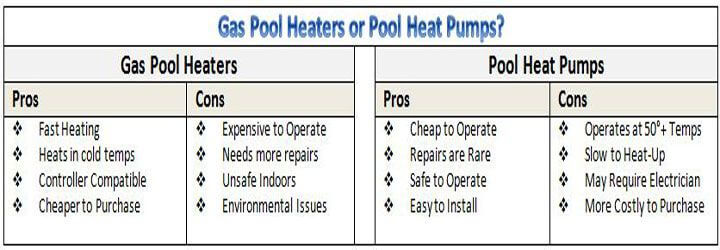
Pool Heating Costs Compared
Your pool heating cost is determined by what your desired pool water temperature is and how long you need to run your heater to maintain that temperature. Your actual pool heating cost will vary, depending on what you pay per kilowatt hour, on your electric bill.
Example: If you pay $3.00 per gallon for propane and you are using a 200,000 BTU heater a rule of thumb is that the operating cost would be approximately $6.00 per hour. The way this is calculated is that a propane heater burns 1 gallon of propane per hour for every 100,000 BTUs. There is long mathematical formula that you can use to determine the exact operating cost and heat up time give us a call if you would like us to crunch some numbers for your situation.
I have an electric heat pump on my own pool and I can tell you first hand – this is the least expensive way to heat a pool. My pool is located in Massachusetts and my family swims from May to September and it only costs me about $800.00 for the entire swim season, or $200 per month.
What About Solar Pool Heaters?
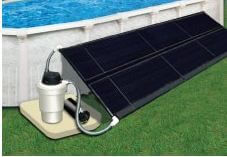 Another option to heat your aboveground pool is with solar heating panels. The only cost is the expense to purchase the solar heating panels and also the cost of operating your pool pump. The heat itself is free from the sun but you typically can only get the pool water a few degrees warmer than what the ambient air is outside. If the outside air is 75 degrees you can’t expect the temperature of the water to be 85 degrees. When heating the pool with solar heating the temperature of the water increases very slowly; 1-2 degrees per day with approximately a 7-10 degree temperature rise for the week.
Another option to heat your aboveground pool is with solar heating panels. The only cost is the expense to purchase the solar heating panels and also the cost of operating your pool pump. The heat itself is free from the sun but you typically can only get the pool water a few degrees warmer than what the ambient air is outside. If the outside air is 75 degrees you can’t expect the temperature of the water to be 85 degrees. When heating the pool with solar heating the temperature of the water increases very slowly; 1-2 degrees per day with approximately a 7-10 degree temperature rise for the week.
Complaints About Pool Heaters
When talking to customers about the different options of heating their aboveground pool many have sticker shock with the cost to purchase an electric heat pump. My question to them would be; why spend all of that money for an aboveground pool and not heat it? You will get much more use out of the pool and your friends and family members will be much happier with warmer water.
When talking to customers about pool heating costs, many complain about the operating cost to run their gas heater. What typically happens with customers that purchase a gas heater is that they use it for the first couple of months and then they get their gas bill and almost fall over. A $500 monthly gas bill is not unheard of, if you are heating the water to 80 degrees, and not using a pool cover. After noticing the cost for operating the gas heater some customers call to supplement the gas heater with solar or electric, but many times their heater becomes a piece of furniture in the backyard and is no longer used.
Sizing & Installing a Pool Heat Pump
Sizing: We have 3 sizes of pool heat pumps for aboveground pools. Typically, a 50,000 BTU heat pump is used for pools up to 13,000 gallons roughly up to a 21ft round pool and the larger size heat pumps of 70,000 to 80,000 BTU’s are used for the larger aboveground pools up to a 30ft, or up to an 18’x33′ oval pool. You can oversize the heat pump, which will give you faster heating and a greater temperature rise, especially if you are not planning on using a solar blanket or liquid fish, to retain the heat at night.
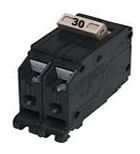 Installation: You will need to hire an electrician for the electrical hookup this requires a 220v dedicated electrical line from the breaker box to the pool heat pump. Most above ground heat pumps require a minimum of a 30amp breaker and the larger units require a larger breaker.
Installation: You will need to hire an electrician for the electrical hookup this requires a 220v dedicated electrical line from the breaker box to the pool heat pump. Most above ground heat pumps require a minimum of a 30amp breaker and the larger units require a larger breaker.
Check with the installation manual to make sure you have space in your breaker panel to add a 30 amp circuit. After the wiring is done in your electrical box you must dig a trench to bury the electrical wire. The closer your heat pump is located to the circuit box the less expensive it will be to install.
In regards to plumbing a pool heat pump, run a PVC pipe from your outlet of the filter and into the inlet of the heat pump, and then run PVC from outlet of heat pump back to your return line. This is simple plumbing, which can be done by any handy homeowner. The real cost for installation is determined by how long it takes your electrician to install the heat pump and what he charges per hour for his labor. In most cases, the cost is just a few hundred dollars.
Crunching the Numbers
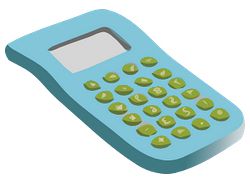 Before I installed an electric heat pump on my own pool I made all of the calculations for all of the pool heating options. When you consider the price of purchasing a gas heater, and the cost to install the gas line, the cost comes out to almost the same price of an electric heat pump. But! The cost to operate a pool heat pump is much less expensive, so for me the choice of a heat pump made good sense. In most cases, the best option for heating an aboveground pool is an electric heat pump like I have on my own pool in Massachusetts.
Before I installed an electric heat pump on my own pool I made all of the calculations for all of the pool heating options. When you consider the price of purchasing a gas heater, and the cost to install the gas line, the cost comes out to almost the same price of an electric heat pump. But! The cost to operate a pool heat pump is much less expensive, so for me the choice of a heat pump made good sense. In most cases, the best option for heating an aboveground pool is an electric heat pump like I have on my own pool in Massachusetts.
Give us a call if you want some help doing the calculations to figure the real costs of heating your aboveground pool. In the meantime, take a look at all of our heaters for aboveground pools.

Chris Low
SPP Pool Expert

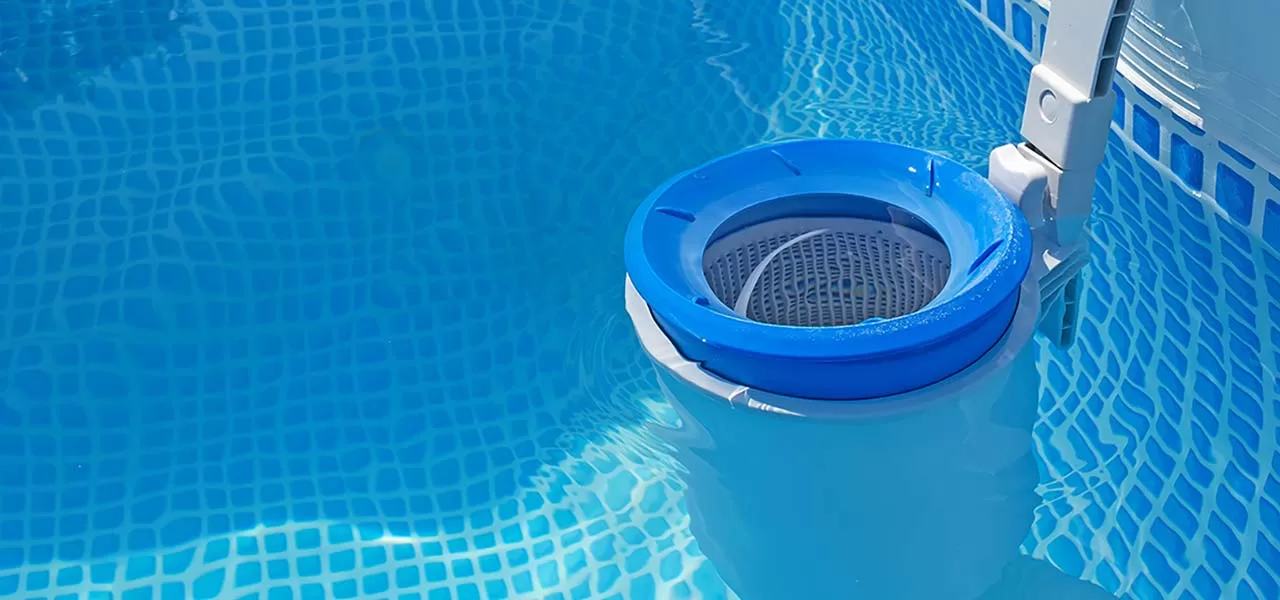
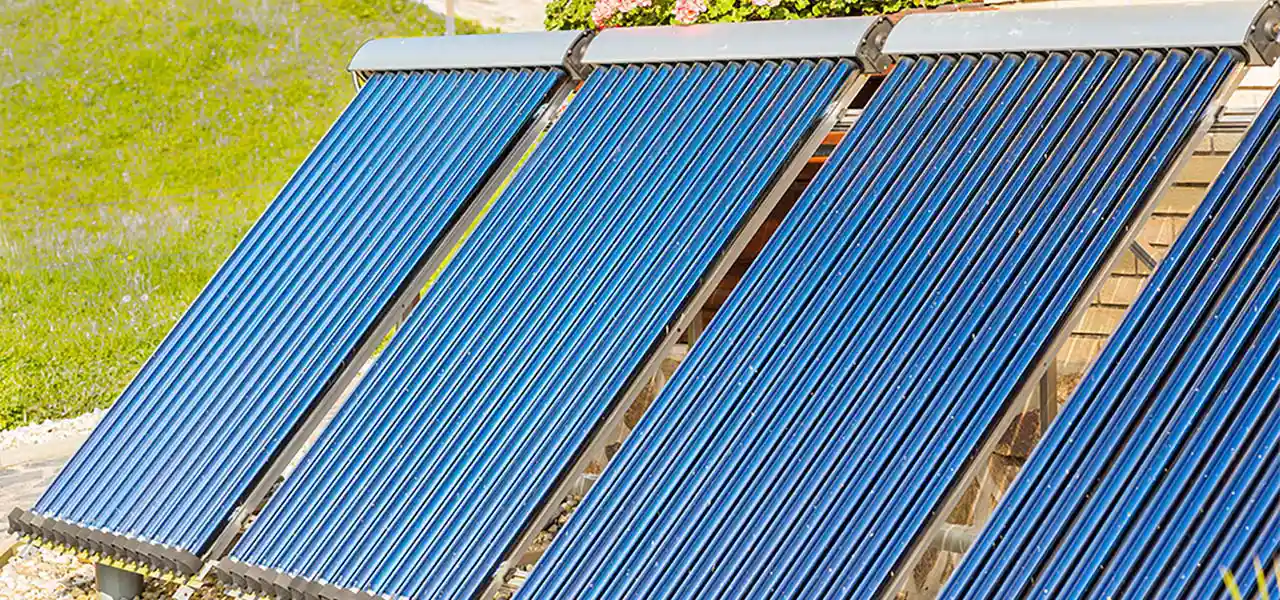
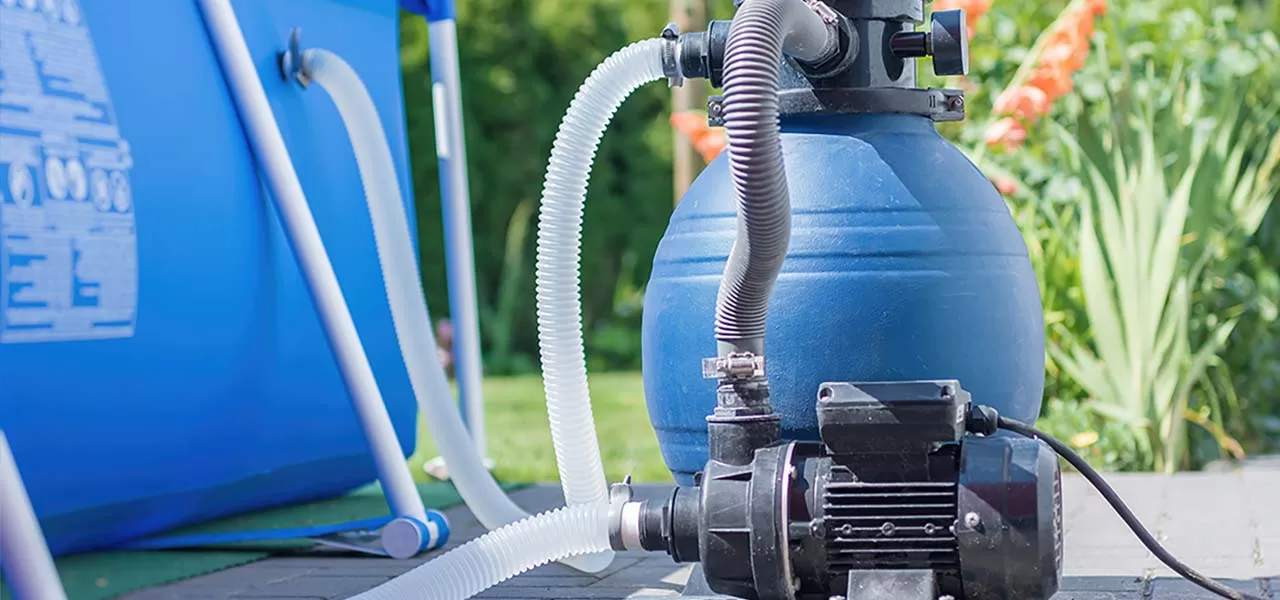
Can a heat pump be located inside? I have an 12 x 24 above ground pool with 51 inch depth, located in a radiant heated pool room? (ceilings are 20-24 foot high)
In Colorado the outside air would be under 50 by end of September. We like to use pool year round but heating pool water by radiant heat makes room to warm or the water to low.(not to mention propane cost)
I have a 100 amp sub-panel within 10 feet of my pool pump.
Hi Jim, generally this is not considered a good idea, as the air that leaves the heat pump is 10-12 degrees cooler, and unless the heat added to the room can keep up with the heat pump, the room will quickly cool down, and the heat pump will shut off. It is not an impossibility, but you have to continuously add more heat to the room than the heat pump is removing. And since the pool is also located in the room, the effect of cooling down the air inside the pool area will also cool the pool water. Read more here: https://www.aquacal.com/can-a-swimming-pool-heat-pump-be-installed-indoors/
I have an 18’x 33’ x 48” oval pool. What size heat pump do you recommend? I live in Raleigh, NC
Hi Renzo, I would go for something around 100 BTU in size.
Thank you. Could you suggest what is the ideal 100BTU equipment in your opinion ? Reasonable price and reasonable quality.
Hi, I like the pool heat pumps by AquaCal and TropiCal, both Florida brands, unfortunately we are out of stock on many at the moment.
[21′ above ground pool with solar cover] Can the heat pump circulate and exchange the water on its own? Or does my filter pump need to be on all the time? I’m hoping the heat pump can operate independantly of the filter pump.
I live in Chicago area. Right now, temps are mid 50’s to 60’s at night and mid 70’s to 80’s daytime. How hard would it be to keep the water temp between 80-85 degrees (85 being ideal). And if I keep 80 degrees as a target goal, is there a way to anticipate when the heat pump will no longer be able to keep a steady 80 degrees? For example, hypothetically speaking, if the average day/night temps drop below 65 degrees?
Hi John, the heat pump is not really a pump, or it won’t move water on its own, it will require the filter pump to push water in/out of the unit. In your area, with a cover on the pool, you can comfortably use a heat pump until the end of Sept, I would think. The colder the outside air is, the more the heat pump runs (and the more expensive it is to run). Heat pumps pull heat out of the surrounding air. Once air temps reach 50 degrees, most heat pumps will not work. At 60 degrees they will still work, but be running almost all the time, but still cheaper to use than gas heater. Daytime temps of 70-90, is the sweet spot for a heat pump.
what size hayward heat pump would i need for a 15×30 48″ deep oval pool. i am on long island. we us the pool between mid may and mid september. like the temp at 85 degrees. pool has sun all day. Thanks.
Hi Bill, look for a heat pump in the 50-75K BTU range. The larger units will save a little money on heating costs in early season, when it is still cool on LI.
i have a 21 ft above ground pool and bought a 80 btu heat pump. I know thats 1 size bigger then what i need but will it be ok to still use?
Yes, bigger heat pump, always a good thing. It will bring the pool up to temperature faster and with lower expense.
I’ve got a 12’ and want to install 50k heat pump. Don’t you think it will be overkill? May need a smaller heater?
Greg, I think that 50K might be the smallest size. Yes it might be overkill, but that is okay, it will operate less and cost less to operate.
ordered a 15×26 oval. 9000 gallons. concerned that 45k btu may not be enough. do i need to go higher?
Hi Dale, not necessarily, 45K BTU is one of the smallest sizes, but 9K is not a big pool. It will add enough heat, unless you are looking for 30 degrees or something. It won’t do that, but it will do 10-15 degrees, maybe 20 when weather is consistently 70-80.
What Size heat pump would I need for an above ground 27 by 4 foot pool? Also, if I decided on a natural gas heater what size would I need?
Betty Ann, for the heat pump, 70-90K BTU’s would be a good range. And for the gas heater, 100K to 150K BTU’s would be a good size
I have a 16×24 48″ pool . How many BTU’s should the electric pump have ?
Look for a heat pump with 50K to 70K btus, and that would be good, great if you also use a solar cover at night.
Hello,
I am getting a 21’ 54 inch above ground pool in Ohio. Would a 50K btu electric pump be sufficient for summer months?
Don, yep! That would be a good size heat pump for a 21′ aboveground pool.